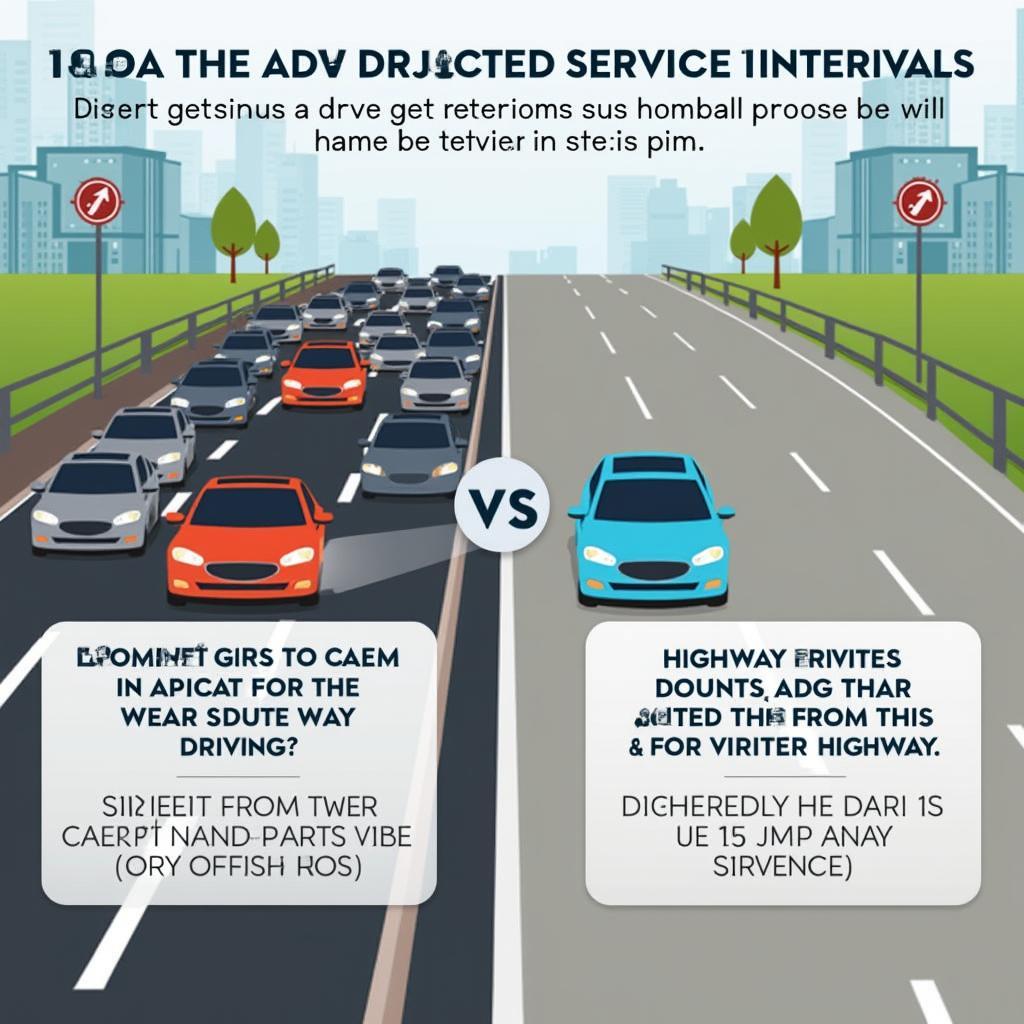Car maintenance is crucial for safety and performance, but How Regularly Should We Get The Car Service Done? Finding the right balance between preventative maintenance and unnecessary expenses can be tricky. This article will guide you through the factors determining your car’s ideal service schedule, ensuring your vehicle stays in top condition without breaking the bank.
Getting your car serviced regularly is like giving it a health check-up. It’s not just about fixing problems, it’s about preventing them. Just after a few thousand miles, your car can benefit from a professional inspection. Understanding your car’s needs and the different types of services available is key to a cost-effective and efficient maintenance strategy. This article explores the answer to “how regularly should we get the car service done?” and provides valuable insights for all car owners. Want to know what a technician does during a service? Check out what does a technition do in a car service.
Understanding Car Service Intervals
Service intervals are not one-size-fits-all. They depend on a variety of factors, including the make and model of your vehicle, your driving habits, and the type of driving you do (city vs. highway). Understanding these factors is essential to determining the right service schedule for your car.
Manufacturer Recommendations: Your Starting Point
Your car’s owner’s manual is your best friend when it comes to service intervals. Manufacturers provide specific recommendations based on mileage or time, whichever comes first. These recommendations cover everything from oil changes and tire rotations to more complex procedures like transmission fluid changes.
Driving Habits: Impact on Service Frequency
Do you primarily drive in stop-and-go city traffic? Or do you mostly cruise on the highway? Your driving habits play a significant role in how quickly your car’s components wear down. City driving, with its frequent braking and acceleration, puts more stress on your vehicle than highway driving. Consequently, if you primarily drive in the city, you might need more frequent servicing.
Severe Driving Conditions: Extra Wear and Tear
Driving in extreme temperatures, dusty environments, or on rough terrain can accelerate wear and tear on your car. If you regularly encounter these severe driving conditions, more frequent servicing is recommended to keep your vehicle running smoothly.
Types of Car Services: From Basic to Comprehensive
Car services range from basic oil changes to more extensive inspections. Understanding the different types of services available will help you tailor your maintenance plan to your car’s specific needs.
Oil Changes: The Foundation of Car Maintenance
Regular oil changes are vital for engine health. Oil lubricates the engine’s moving parts, reducing friction and preventing overheating. Over time, oil degrades and loses its effectiveness. Sticking to the recommended oil change intervals is crucial for preventing engine damage.
Interim Service: A Mid-Point Check-Up
An interim service typically falls between full services and includes checks on essential components like brakes, fluids, and lights. It’s a good option for high-mileage drivers or those who drive in demanding conditions. If you are curious about the cost of a Honda service, how much is a honda car service can provide you with valuable information.
Full Service: A Comprehensive Inspection
A full service is a comprehensive check-up that covers all major systems, including the engine, brakes, suspension, and electrical system. It’s typically recommended annually or every 12,000 miles. Knowing what is done in a car service will help you understand the value of this comprehensive check.
Signs Your Car Needs Servicing Sooner
While scheduled maintenance is essential, your car might sometimes need attention sooner than expected. Pay attention to these warning signs:
- Unusual noises: Any new or unusual sounds coming from your car, such as grinding, squealing, or knocking, could indicate a problem.
- Warning lights: Never ignore warning lights on your dashboard. They are your car’s way of telling you something is wrong.
- Reduced performance: If your car feels sluggish, hesitates when accelerating, or has decreased fuel efficiency, it might be time for a service.
“Regular maintenance is an investment, not an expense,” says John Smith, Senior Automotive Technician at Advanced Auto Solutions. “Addressing small issues early can prevent them from developing into major, costly repairs down the line.”
How Regularly Should We Get the Car Service Done? A Tailored Approach
Ultimately, the question of how regularly you should get your car serviced depends on a combination of factors. Start with your manufacturer’s recommendations, then adjust based on your driving habits and conditions. Don’t hesitate to consult with a trusted mechanic for personalized advice. Do you rarely use your car? Find out is service needed if car is rarely used.
In conclusion, regular car servicing is crucial for maintaining your vehicle’s safety, performance, and longevity. By understanding the factors that influence service intervals and paying attention to your car’s needs, you can ensure your vehicle stays in top condition for years to come. Don’t forget to consult your owner’s manual and a qualified mechanic to determine the best service schedule for your specific car. Knowing what is the average cost of a full car service will help you budget accordingly.
FAQ
-
What is the recommended service interval for my car? Check your owner’s manual for manufacturer-specific recommendations.
-
What is included in a full car service? A full service includes a comprehensive check of all major systems, including the engine, brakes, suspension, and electrical system.
-
How often should I change my car’s oil? Consult your owner’s manual for recommended oil change intervals.
-
What are some signs that my car needs servicing? Unusual noises, warning lights, and reduced performance are all signs that your car might need servicing.
-
Why is regular car servicing important? Regular servicing helps maintain your vehicle’s safety, performance, and longevity.
-
What is the difference between an interim service and a full service? An interim service is a mid-point check-up, while a full service is a more comprehensive inspection.
-
Can I service my car myself? While some basic maintenance tasks can be done at home, it’s generally recommended to have your car serviced by a qualified mechanic.
Need help with your car service? Contact us via WhatsApp: +1(641)206-8880, or Email: [email protected]. Our customer service team is available 24/7.


